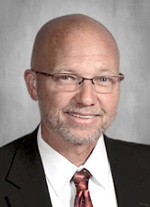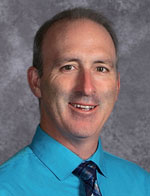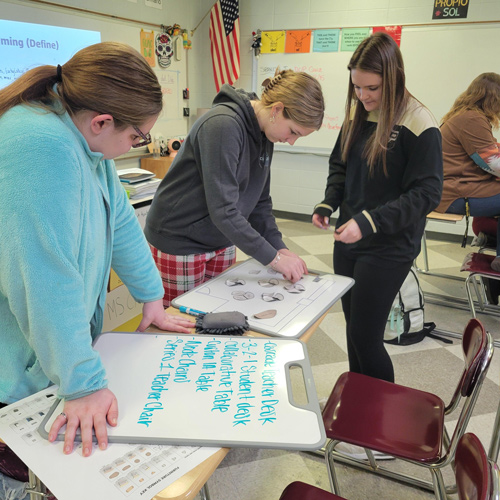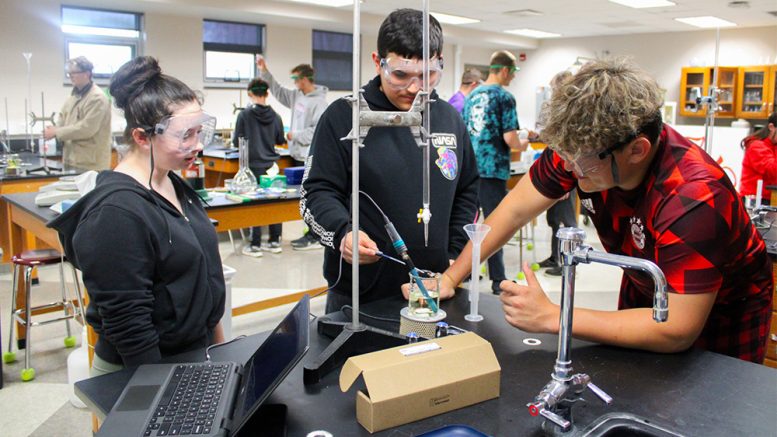 The Center of Excellence in Leadership of Learning (CELL) at the University of Indianapolis recently announced the endorsement of the Early College (EC) program at Sheridan High School (SHS).
The Center of Excellence in Leadership of Learning (CELL) at the University of Indianapolis recently announced the endorsement of the Early College (EC) program at Sheridan High School (SHS).
The goal of Sheridan High School is to prepare students for life after high school. That may include employment with skills they have obtained in high school, a head start on college through a rigorous curriculum and dual credits, or enlistment in the armed services.
CELL appreciates the work that SHS staff, students, and parents put forth to meet the requirements to be an endorsed EC program. SHS’s involvement in a U.S. Department of Education grant called the Rural Early College Network has provided significant support in helping the high school accomplish this goal.

Mundy
“I am extremely happy to achieve this honor for our teachers, students, and our entire community,” Sheridan Community Schools Superintendent Dr. Dave Mundy said. “Our faculty team, under the leadership of Mr. Davis, has worked very hard to elevate our class curriculum and offerings for students and the Center of Excellence in Leadership of Learning has assisted us in meeting these lofty goals. We appreciate the recognition, and we look forward to working with CELL to continue to push learning opportunities for all our students.”
SHS Principal Rick Davis echoed the excitement of the honor and recognition of those involved.

Davis
“This is a tremendous recognition of the time, energy, work, and excellent staff and students we have at Sheridan High School,” Davis said. “It is exciting to see how far we have come over the past three years, with the support of CELL and the Rural Early College Network, to be able to achieve this goal.”
The EC high school model creates small schools designed to give students jumpstarts for the rest of their lives. Students can earn both high school diplomas and up to two years of credit toward bachelor’s or associate degrees. While open to all students, EC programs specifically serve low-income young people, first-generation college students, English language learners, and students of color – all statistically underrepresented in higher education.
To be considered for endorsement, the school prepared a portfolio that addressed the required eight principles established by CELL, including providing a rigorous curriculum, robust student supports, and completion data. In addition, a CELL team visited the school to interview administrators, teachers, students, and parents about the EC and its benefits and challenges before designating the program as endorsed.

Sheridan students in the Educational Professions class, which is earning them college credit towards a degree in education. (From let) Liberty Coyle Paddack, Abbi Miller, and Emily Will. (Photo provided by Sheridan Community Schools)
“These newly-endorsed Early College High Schools have documented evidence of quality programs that help high school students graduate and accelerate into post-secondary education, whether at a four-year institution or a career/technical program. These students’ accomplishments are true game changers for them and their families,” EC CELL Director Sandy Hillman said.
The strong leadership of Principal Rick Davis and Counselor Jessica Cantlon with support from Superintendent Dave Mundy creates the vision and implements the mission of this dynamic program. Alexis Garbo, Director of K-14 at Ivy Tech Hamilton County, plays a key role in the successful delivery of the Early College program.
CELL is a leading convener, catalyst, and collaborator for dynamic, innovative education change in Indiana. It has trained over 180 high schools across the state in the fundamentals of EC and endorsed 44 ECs as of April 2022. Once a school receives endorsement, it is expected to further develop its student opportunities and will be reviewed for re-endorsement every three years. Learn more at cell.uindy.edu.

